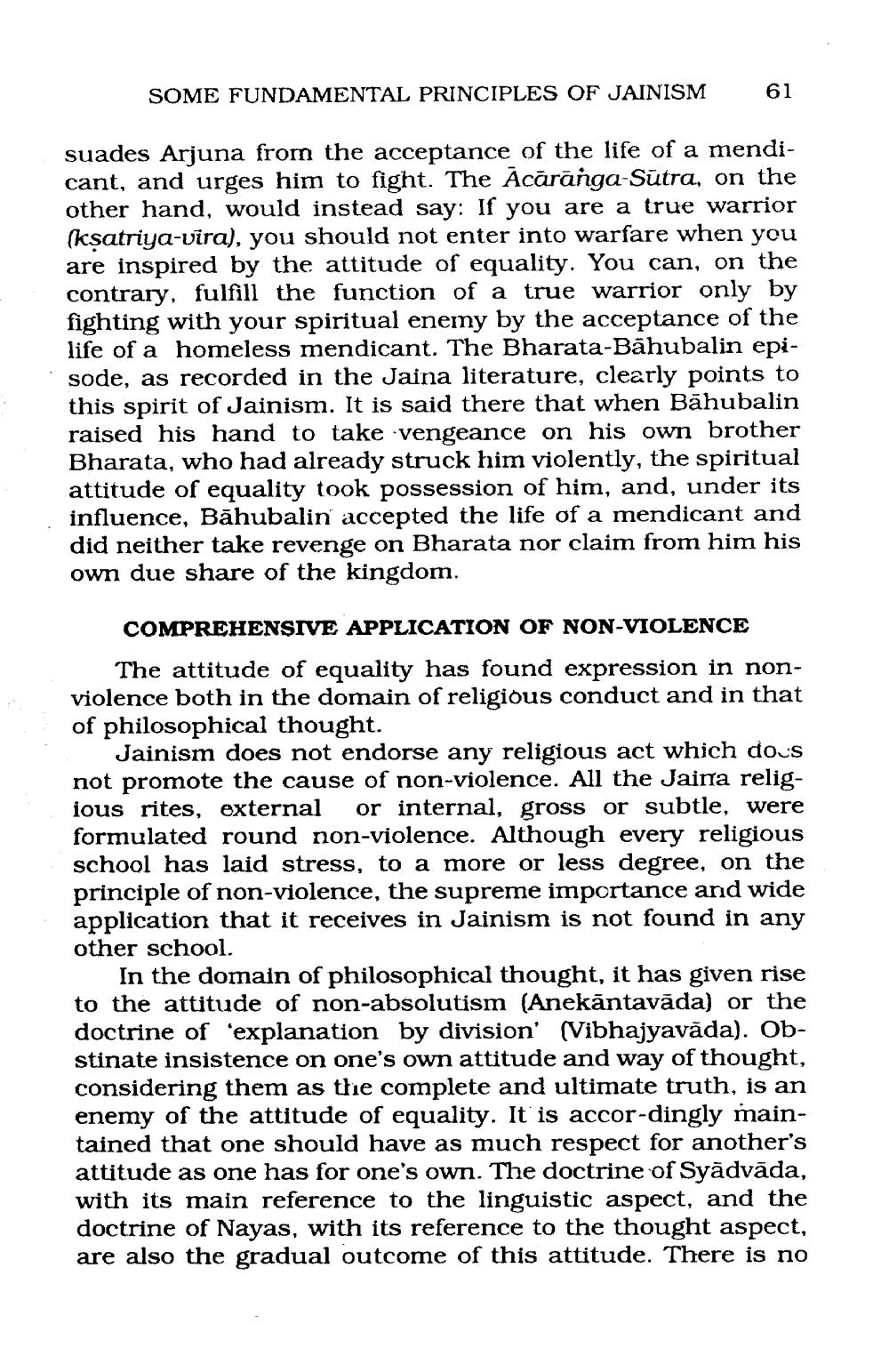________________
SOME FUNDAMENTAL PRINCIPLES OF JAINISM
61
suades Arjuna from the acceptance of the life of a mendicant, and urges him to fight. The Acaranga-Sutra, on the other hand, would instead say: If you are a true warrior (kṣatriya-vira), you should not enter into warfare when you are inspired by the attitude of equality. You can, on the contrary, fulfill the function of a true warrior only by fighting with your spiritual enemy by the acceptance of the life of a homeless mendicant. The Bharata-Bahubalin episode, as recorded in the Jaina literature, clearly points to this spirit of Jainism. It is said there that when Bahubalin raised his hand to take vengeance on his own brother Bharata, who had already struck him violently, the spiritual attitude of equality took possession of him, and, under its influence, Bahubalin accepted the life of a mendicant and did neither take revenge on Bharata nor claim from him his own due share of the kingdom.
COMPREHENSIVE APPLICATION OF NON-VIOLENCE
The attitude of equality has found expression in nonviolence both in the domain of religious conduct and in that of philosophical thought.
Jainism does not endorse any religious act which does not promote the cause of non-violence. All the Jaina religious rites, external or internal, gross or subtle, were formulated round non-violence. Although every religious school has laid stress, to a more or less degree, on the principle of non-violence, the supreme importance and wide application that it receives in Jainism is not found in any other school.
In the domain of philosophical thought, it has given rise to the attitude of non-absolutism (Anekāntavāda) or the doctrine of explanation by division' (Vibhajyavāda). Obstinate insistence on one's own attitude and way of thought, considering them as the complete and ultimate truth, is an enemy of the attitude of equality. It is accor-dingly maintained that one should have as much respect for another's attitude as one has for one's own. The doctrine of Syādvāda, with its main reference to the linguistic aspect, and the doctrine of Nayas, with its reference to the thought aspect, are also the gradual outcome of this attitude. There is no




